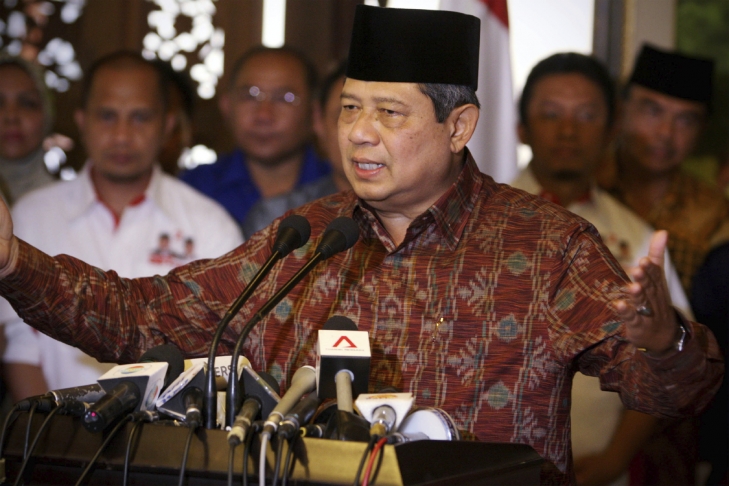
Indonesia’s first directly elected president is proud of successes despite falling short on some promises
On 20 October, 2004 when Susilo Bambang Yudhoyono was sworn in as Indonesia’s sixth president, the world was a challenging place for the leader of the world’s most populous Muslim country. Terror attacks by Al-Qaeda, including bombings in Bali in 2002 and 2005, had strained relations between the West and the Muslim world. Indonesia still owed the International Monetary Fund (IMF) over US$7 billion following the 1997 Asian Financial Crisis which had wreaked havoc on Southeast Asian economies.
The economy was regaining its footing and growing at 4.8 percent the previous year, but still some way off pre-crisis growth of 7.6 percent in 1996. On the external front, the Indonesian armed forces were ramping up its campaign in the restive province of Aceh amidst a background of low-level conflict in West Papua and the Maluku Islands.
“It is often said that Indonesia is a difficult country to govern,” said Yudhoyono at a recent SMU Presidential Distinguished Lecture. “I have also found that this complicated nation has simple needs. When all was said and done, Indonesian aspire to some basic things: prosperity, peace, justice, and democracy.
“On prosperity, the economic growth in 2004 was 4.5 percent. My ambition was to increase it to seven percent. In reducing poverty, the government must allocate more funds to help the needy amongst us, to provide them with better basic healthcare and education. My vision was about the four-track economic programme: pro-growth, pro-job, pro-poor, and pro-environment.
“As a result, I managed six percent economic growth on average. Unemployment rate fell from 10 percent to under six percent. The poverty rate was chopped from 17 percent to around 11 percent.”
Managing Indonesia
The Indonesian economy has slowed down noticeably since 2014, triggering street demonstrations calling for Yudhoyono’s successor, Joko Widodo, to do more. In March this year, a Jakarta protest by taxi drivers against ride-hailing app Go-Jek turned violent, leading to over 80 arrests.
Such tensions are reflected in parliament, sometimes resulting in unseemly fisticuffs between elected officials.
“Our democracy is a work in progress,” Yudhoyono said, pointing out the time it took more established democracies to reach their present state: Britain – over 800 years since Magna Carta; United States – 240 years since the Declaration of Independence; France – 225 years since the French Revolution. He added: “Even today, these democracies are still evolving. Indonesian democracy is over a decade old and will also continue to evolve. You don’t go from A to Z. In many cases it’s a stop-go process rife with ups and downs, shocks and jolts.”
On security, the 66-year-old emphasised the role of what he calls “strategic trust” in settling decades-old fighting in places such as Aceh: “When two or more parties have faith regarding the goodwill and intention of one another, strategic trust is earned. Like any form of trust between individuals and institutions, strategic trust must be earned and cared for.”
“Regarding Aceh,” he continued, “We had to change our mindset and approach. For almost 30 years, we used military force but it did not work. So I said to the army, ‘Your goal isn’t to continue combatting the Aceh resistance. Your goal is to end the conflict peacefully and ensure that Aceh remains part of Indonesia.’
“To that end, I chose negotiation. In no more than several months, we had a peace deal.”
While Yudhoyono can point to his successes, critics point to failed promises to tackle corruption, minimal improvement on infrastructure, and pandering to popular opinion at the economy’s expense.
“Looking back at my presidency, I can say with confidence that I was able to achieve some of these promises and not others,” he conceded. “What we needed in Indonesia wasn’t change for the sake of change, but a change for the better. We needed a better government, a better economy, a better society, a better political culture, a better environment; simply, a better future.
“If you want to be an Indonesian leader, you must have great patience. The political environment is noisy and the expectations are very high. People want things to be done the right way. You have to listen to them otherwise there will be street demonstrations and the like. There will be noise in the political process but I have to deal with it.”
Follow us on Twitter (@sgsmuperspectiv) or like us on Facebook (https://www.facebook.com/PerspectivesAtSMU)
Last updated on 27 Oct 2017 .